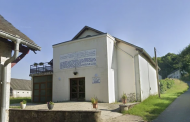Sarah Rashad
Hardly a week since Tunisian President Kais Said spoke about what he called “closed rooms” during his speech on Wednesday, September 2, the country woke up to a terrorist operation in which three ISIS members stabbed and ran over two security men in Sousse, one of whom was killed.
The operation took place during the first week of new Prime Minister Hichem Mechich’s government, which was sworn in on Wednesday.
Saied had said in his speech that he is aware of plots against him by some political forces, which he did not name. This opened the door to a torrent of interpretation and speculation, with most agreeing that he was referring to the Brotherhood-affiliated Ennahda movement.
During the swearing-in ceremony of the new government, Saied talked about what he described as betrayals, secret deals, the buying of debts, and loyalty to Zionist powers.
The speech inflamed the Tunisian political scene, as analysts said that it increased tensions between Ennahda and the president, while the Tunisian Labor Union demanded that the political cover be lifted from the political forces associated with terrorism, about which Saied had spoke.
This re-sheds light on the file of Ennahda’s “secret organization”, which began to be discussed about a year ago during the reign of late President Beji Caid Essebsi but was closed without resolution due to political understandings.
The Sousse operation may be a reason for Saied to break his silence, in light of the demands directed at him to disclose the information in a timely manner.
Commenting on the operation, Saied said, “Terrorist and criminal operations will not bind Tunisians. Anyone who wants to arrange for new political situations via these operations is delusional, because the secret is no longer hidden to the people.”
This reinforces the hypothesis that there is a relationship between ISIS and political forces in Tunisia, as Saied’s speech revealed that ISIS is working in the interest of certain political parties.
Tunisian writer Habib al-Aswad agrees on the existence of this relationship. In an article entitled “When the culture of terrorism finds someone to sponsor it”, he said, “The extremist religious ideology has managed to occupy its position in Tunisia and find someone who strongly defends it. It has wings betting on its electoral votes, adopting its decisions, and chanting for them in the parliament. Its social manifestations occupy more spaces each new day, which has become a danger to society as a whole. This was evident from the operation last Monday in which two Brotherhood members not registered with the security authorities took part. They are both terrorist suspects, meaning that they were recruited recently.”







































admin in: How the Muslim Brotherhood betrayed Saudi Arabia?
Great article with insight ...
https://www.viagrapascherfr.com/achat-sildenafil-pfizer-tarif/ in: Cross-region cooperation between anti-terrorism agencies needed
Hello there, just became aware of your blog through Google, and found ...